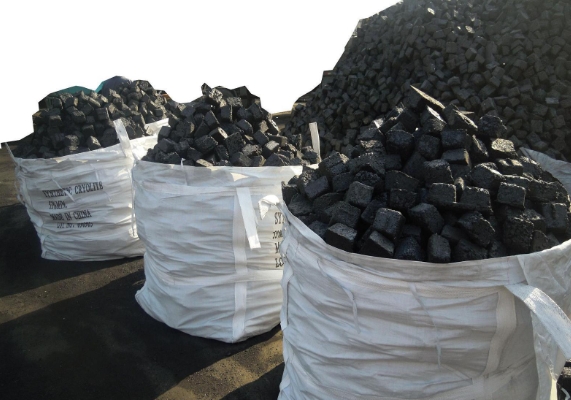
Almost 100 years ago, Elkem was the first business worldwide to manufacture Soderberg electrode paste. This is a mix of carbon-based materials used to form the self-baking electrodes that are required in the smelting procedure using electricity in which several industrially important metals are made. Today, our company remains one of the leaders in this crucial area and continues to develop new methods to help clients achieve greater efficiency in production for its electric arc furnaces.
Soderberg paste is composed from carbonaceous powders that include carbonaceous calcined and calcined coal the tar and the calcined oil coke. They are combined with binders (usually tar or pitch). It's used to make self-baking, continuous electrodes that are used in the electrical thermal furnace (EAF) for non-ferrous and ferrous metallurgy. especially to make ferrous iron, which is used to smelt and form different steel components, including ferroalloys, calcium carbide and.

Demand for the steel that is produced using electric arc furnaces have been growing rapidly in the last few years. This has led to an increase in manufacturing of Soderberg electrode paste in order to ensure sufficient supplies of the necessary material for the EAF the steelmaking procedure.
However, the pandemic has impacted global demand for steel, and had a significant impact on the supply of many ingredients needed for the production of Soderberg electrode paste. Apart from the shortages and price volatility of essential raw materials like petroleum coke as well as coal tar pitch. The COVID-19 virus affected the availability of workers in manufacturing plants across the world, resulting in production slowdowns or even shutdowns in certain areas. This has led to delays in shipping and difficulties moving products between countries have exacerbated the problems.
To keep steelmakers in business, having an adequate quantity with Soderberg electrolyte pastes is crucial. To improve the quality of their products, producers are constantly improving their production processes to optimize performance and increase the lifespan of the equipment they use. Digital and automation technologies are playing increasing roles in these efforts because they give greater control over the final product.
An example of this is the recently installed piston and screw press at the plant for briquettes that will allow EPM-NovEP to produce a new, better briquette, with larger pores and more uniform that the current products. The improvements will increase the market share of the company within the sector. The plant will also upgrade its packaging process so that it can allow the packing of goods into bags that are large. Volza’s extensive import export data gives detailed information about Carbon electrode paste imports, by both country and supplier. The database contains more than 70 millions records, which are updated every day. Users can use this information to identify and analyze trading opportunities that they may miss. The users can make reports and graphs based on the data, in addition to create comparisons between supplier and buyer profiles. These tools can help to discover hidden opportunities and emerging growth markets. Register for the Volza's free trial to begin using the database.

Write a Message